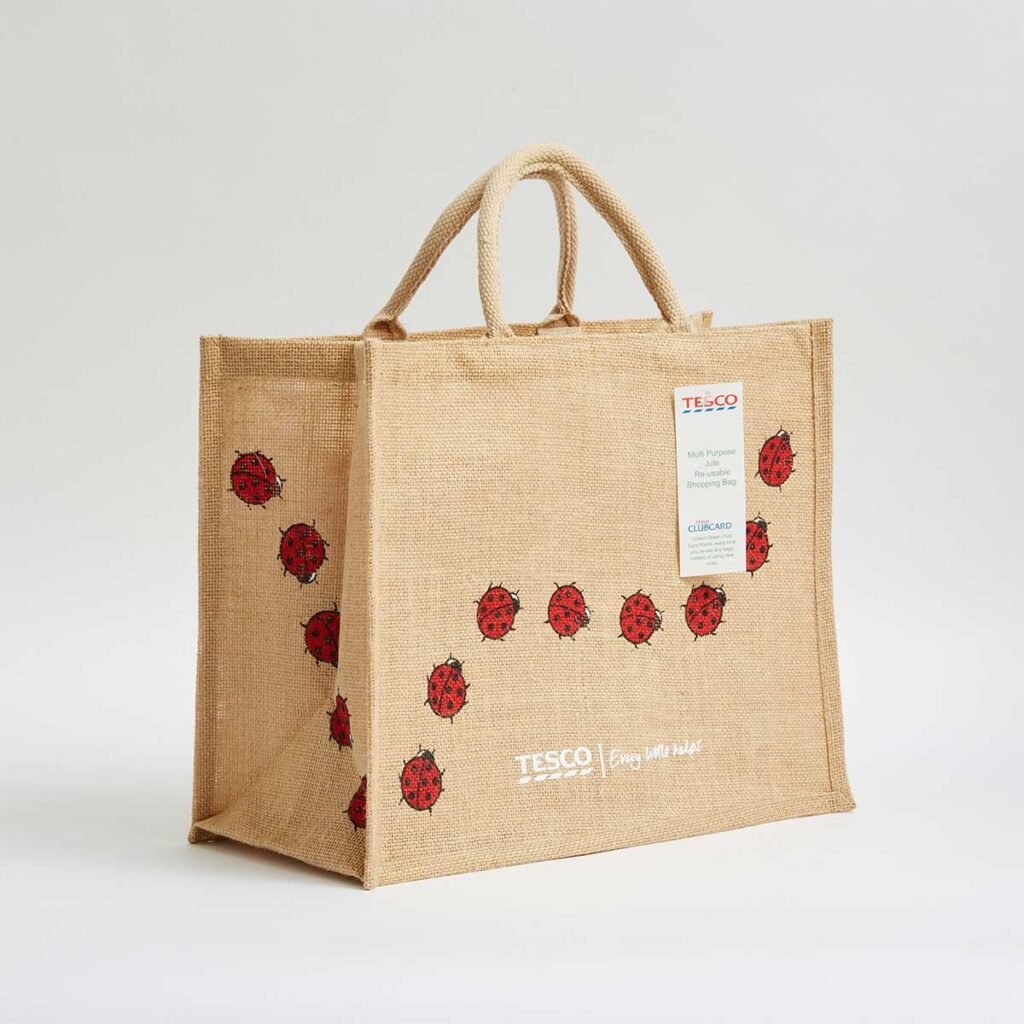Jute Bags vs. Cotton Bags: What’s the Difference?
When choosing between jute bags and cotton bags, it’s important to understand their differences. Both options offer eco-friendly benefits, but they each have unique features. Let’s dive into the key aspects of jute bags vs. cotton bags to help you make an informed choice.

1. Material Composition
First, let’s discuss the materials. Jute bags are made from jute fiber, which comes from the stem of the jute plant. This natural fiber is strong and biodegradable. Jute grows quickly and requires minimal water and pesticides, making it an environmentally friendly choice.
On the other hand, cotton bags are made from cotton, a soft and versatile fiber harvested from cotton plants. Cotton is also biodegradable, but its cultivation often involves more water and chemicals compared to jute. Therefore, while both materials are natural, their environmental impacts vary.
2. Durability and Strength
When it comes to durability, jute bags and cotton bags each have their strengths. Jute fibers are known for their high tensile strength, which means jute bags are incredibly durable and can handle heavy loads without easily tearing. They are often used for carrying groceries, books, and other substantial items.
Cotton bags are also durable, but they generally don’t match the strength of jute bags. Cotton fibers can stretch and become weaker under heavy loads. While cotton bags are sturdy enough for everyday use, they might not hold up as well under intense wear and tear.
3. Eco-Friendliness
Both jute bags and cotton bags are considered eco-friendly, but their environmental impacts differ. Jute bags are highly sustainable because jute grows rapidly and requires fewer resources. The production process is less energy-intensive and produces fewer greenhouse gases compared to cotton.
Cotton bags are sustainable too, but their environmental footprint is larger due to water usage and the need for pesticides. Organic cotton bags mitigate some of these impacts, but they are typically more expensive than conventional cotton bags. Thus, if environmental impact is a major concern, jute might be the better choice.
4. Maintenance and Care
Caring for jute bags and cotton bags involves different approaches. Jute bags should be cleaned with a damp cloth and mild soap to avoid water damage. They should not be submerged in water as excessive moisture can weaken the fibers.
Cotton bags, however, can often be machine washed, making them easier to clean. They may require more frequent washing to maintain their appearance, especially if used regularly. Cotton is more absorbent than jute, so it can handle a bit more water, but always follow care instructions to extend the life of the bags.
5. Aesthetic and Versatility
In terms of aesthetics, both jute and cotton bags offer a range of styles and designs. Jute bags typically have a rustic look due to the natural texture of the fiber. They are often used for their sturdy appearance and are ideal for promotional purposes and eco-friendly campaigns.
Cotton bags offer a softer texture and are available in a wider variety of colors and prints. They are versatile for casual use and can be easily customized with designs, making them a popular choice for shopping, events, and branding.
6. Cost Considerations
Cost is another factor to consider. Generally, jute bags can be more affordable due to their lower production costs. They provide a cost-effective option for bulk purchases, making them ideal for businesses looking to promote their brand sustainably.
Cotton bags, especially those made from organic cotton, tend to be more expensive. The higher cost reflects the more resource-intensive production process. However, cotton bags offer a premium feel and additional customization options, which might justify the higher price for some consumers.
7. Usage and Applications
Finally, consider how you plan to use the bags. Jute bags are great for carrying heavier items and are often used in retail settings, trade shows, and for bulk shopping. Their robust nature makes them suitable for heavy-duty tasks.
Cotton bags are versatile for everyday activities, such as grocery shopping, beach outings, and casual events. They are often chosen for their lightweight feel and ease of carrying, making them a practical choice for daily use.
Conclusion
In summary, choosing between jute bags vs. cotton bags depends on your needs and priorities. Jute bags excel in durability, environmental benefits, and cost-effectiveness, making them a great choice for heavy-duty use and eco-friendly promotions. Cotton bags, while less durable and more resource-intensive, offer versatility, ease of maintenance, and a range of aesthetic options. Consider these factors to select the bag that best fits your lifestyle and environmental values.



